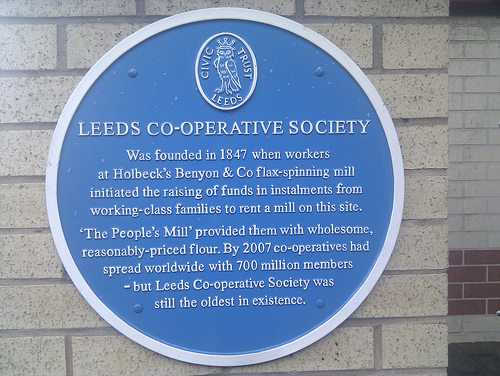Happy Employee Ownership Day! To celebrate, sack your boss.

Today, according to the august Employment Relations and Consumer Minister, Jo Swinson, is the first national Employee Ownership Day. To celebrate, the Department for Business, Industry and Skills (BIS) have announced a new Statutory Instrument. That’s just how those crazy cats roll.
The SI in question is about as interesting as you might imagine. If you want the full details you can read BIS’s press release, but in short it makes it easier for a company which has an employee-ownership scheme to buy back shares from an employee who is leaving. Fine, I suppose, as far as it goes. But hardly a fitting tribute to our newest national holiday.
The Green Party in England and Wales, on the other hand, have a lamentably little-known and under-appreciated proposal that has the potential to transform the landscape of business ownership. I’ll be honouring Employee Ownership Day by drafting a motion to write it into Scottish Green policy too. It goes like this:
We will grant employees the legal right to buy out their companies and turn them into workers co-operatives. Buy outs would be funded by a Green National Investment Bank and contingent on the co-ops following green and ethical policies. These co-operatives would localise economic decision-making and give employees incentives for greater productivity.
This “Right To Co-Operate” mirrors the successful but under-resourced Community Right To Buy that Scotland has enacted to address the unequal pattern of land ownership. You wouldn’t have to work too hard to show that the inequality in business ownership is a similarly serious problem.
The benefits of increasing the number and power of workers’ co-operatives are many, but for me two stand out.
Firstly, the economy largely controls politics (that’s why we talk about the ‘political economy‘), and corporate capital controls the economy. By shifting the balance of economic power we would find future pro-worker measures far easier to win.
Secondly, and more immediately, workers’ co-ops differ from their competitors in that they are set up to see well-paid, fulfilling jobs as a desirable outcome, whereas private firms see them as a cost to be eliminated. A co-operative economy will provide more and better jobs, with little risk of being offshored to sweatshops overseas – no-one votes to outsource their own job.
This is the sort of radical but clearly practical economic reform that should have followed the catastrophic collapse of the assumptions of corporate capitalism in 2008. But instead of trusting the workers, who have done nothing but work harder and harder for lower and lower wages, most governments have given the keys to our courtesy car to the very drunk that crashed the last one. Even BIS’s limp announcement for Employee Ownership Day hopes to promote employee empowerment by making it cheaper for companies to grant it to them, not by giving any rights to the employees themselves.
If enacted, the Greens’ Right To Co-Operate would give us all the opportunity to do something we probably ought to have done five years ago: sack our bosses.


Nice. A step further than the French law this autumn to require owners selling their business to offer it to the employees. The French worker coop movement cgscop ate working closely with minister benoit hamon . For all the reasons you state.
Get in touch I am interested in promoting this
Bob Cannell UK worker coops council